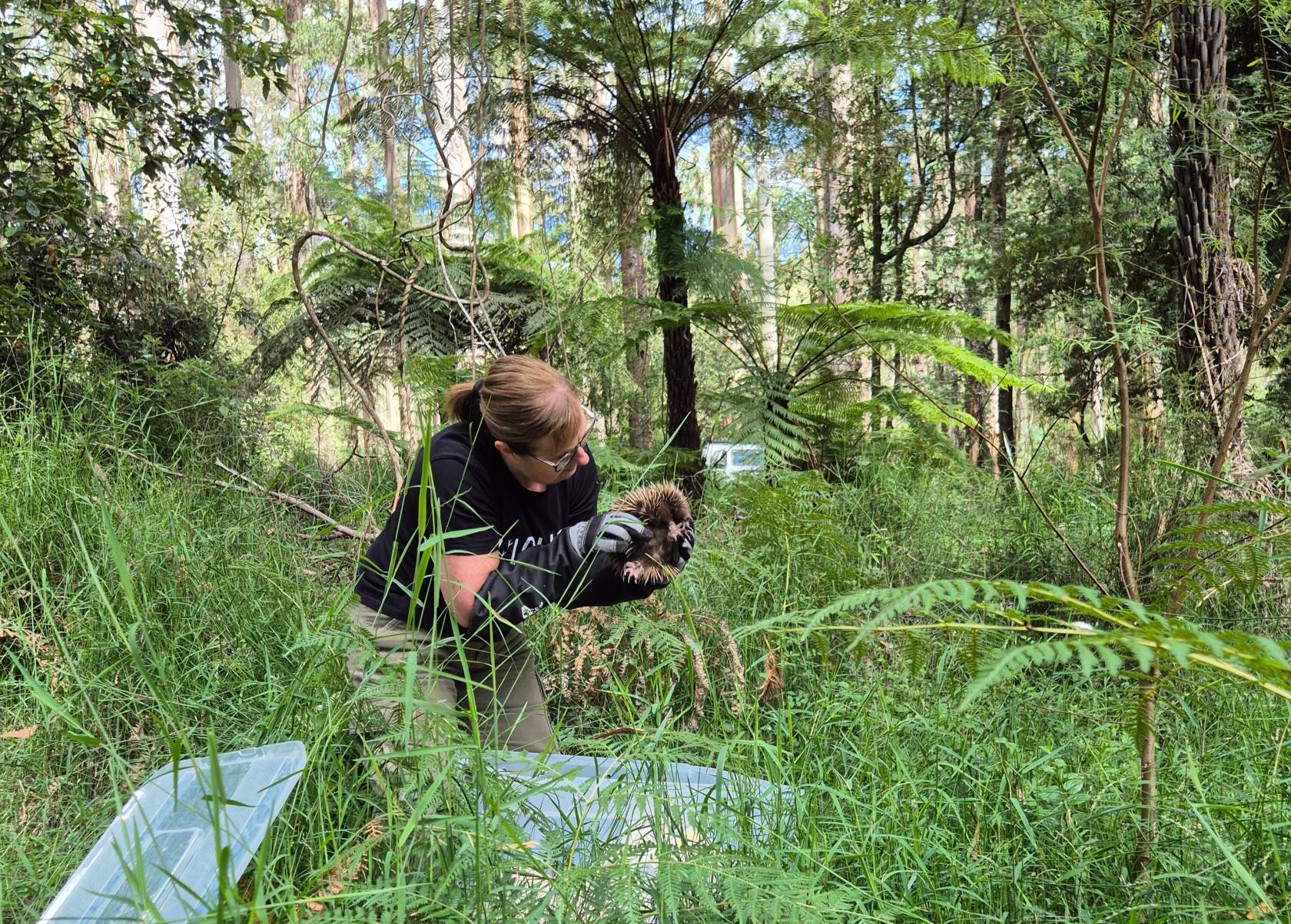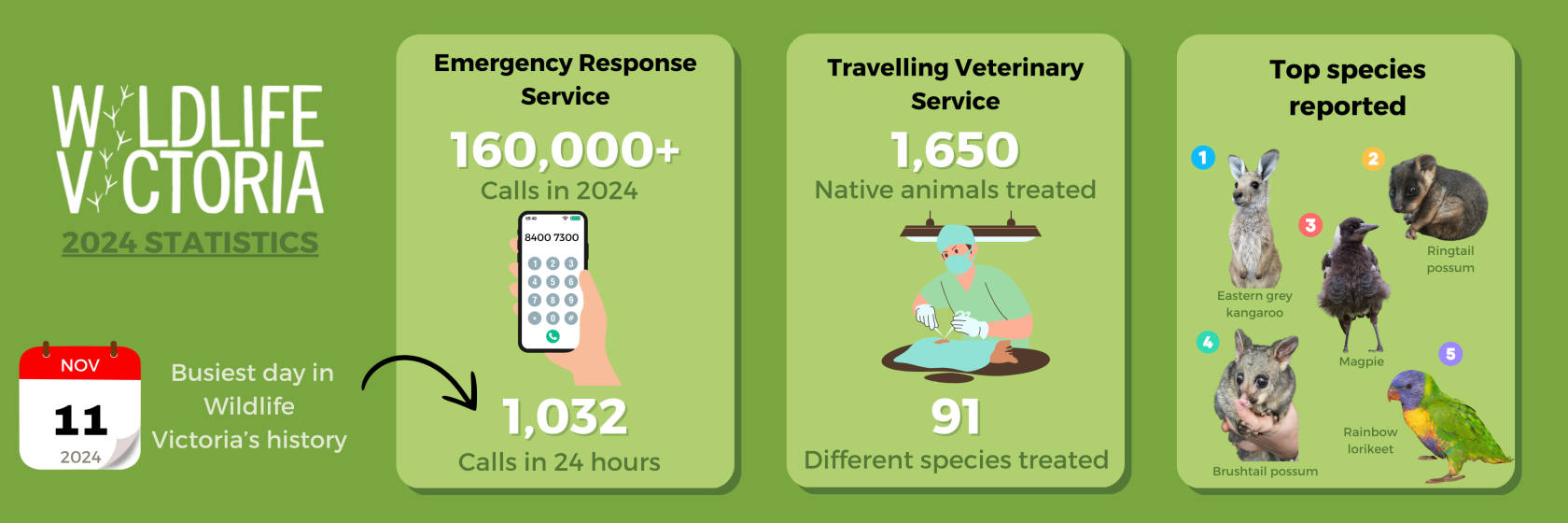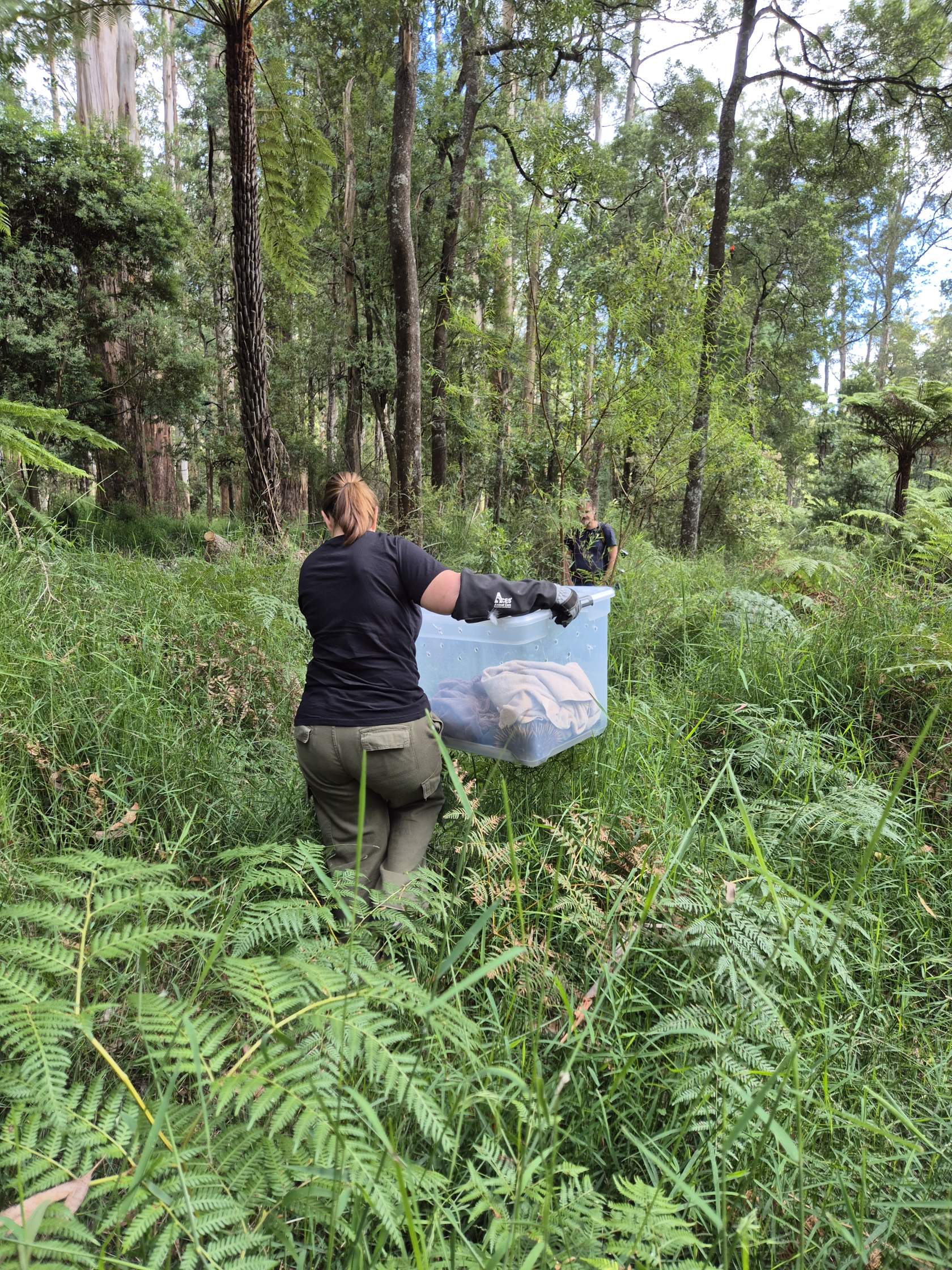
Thank you for your ongoing support of Wildlife Victoria. As a non-profit charity with limited government support, we rely on the community to continue our vital work rescuing and rehabilitating sick, injured, and orphaned native wildlife. Without our dedicated supporters, this work wouldn’t be possible, and we are truly grateful.
Since our last update, we have wrapped up a record year here at Wildlife Victoria. In 2024, our Emergency Response Service received over 160,000 calls from members of the public and deployed volunteers in field to assist 97,772 native animals across 455 different species. This represents an 18% increase in demand for our services on prior years, and a 21% increase in animals impacted.
We also recorded the busiest day in our 35-year history with over 1,000 calls for help to our Emergency Response Service – nearly a call a minute – in early November. While spring is by far our busiest season, it was a typical day with no obvious rhyme or reason for the spike. This is becoming a common occurrence for Wildlife Victoria with our native wildlife on the frontline of the impacts of climate change, habitat destruction, and fragmentation. In the face of these increasing pressures, we are doing the best we can to ensure the best welfare outcomes for every native animal called through to our Emergency Response Service.
This is why our work is more important than ever.
24 hours a day, 365 days a year, our incredible staff and dedicated volunteers are responding to reports of sick, injured and orphaned native animals. Our role is crucial in supporting the health and viability of wildlife populations all year round and helping to offset the unknown long-term impacts of these issues.

Looking ahead in 2025
Rescue and rehabilitation
Our Emergency Response Operators (EROs), Travelling Veterinary Team and committed network of volunteers will continue to respond to reports of sick, injured, and orphaned wildlife with animal welfare at the core of everything we do. Our Emergency Response Service is available 24 hours a day, 365 days a year so never hesitate to call us on (03) 8400 7300 if you encounter a native animal in need.
Supporting our volunteers
We're preparing for another winter of training for new Wildlife Victoria volunteers. Training is held across the state and led by Wildlife Victoria volunteers with a wealth of experience and knowledge. If you have ever considered volunteering, now is the time! We’ll be announcing training dates shortly so make sure to check our website regularly and follow us on social media.
Wildlife road toll reduction
Wildlife vehicle collisions are the most common reason people call Wildlife Victoria. Since 2018, reports have steadily increased, prompting us to launch the Wildlife Road Toll Reduction Project in 2023.
In 2025, we’ll continue this project by working with councils to provide advice and insight to support the implementation of mitigation strategies to reduce wildlife road trauma. This critical initiative will reduce the number of native animals injured and killed on Victoria’s roads and will significantly reduce pressure on volunteer rescuers and rehabilitators.
As a wildlife rescuer and rehabilitator myself, I am profoundly aware of the impact road incidents have on our native animals and the people caring for them. To attend the scene of a native animal that has been hit by a vehicle is deeply confronting and can have significant impacts on the people responding. You can learn more about the Road Toll Reduction Project here.


Echidna release in Sherbrooke Forest, December 2024.
I hope you enjoy this edition of our Supporter eNewsletter including a meet and greet with one of our dedicated Emergency Response Operators, and hearing about an incredible rescue and release of a collared sparrowhawk by a highly experienced Wildlife Victoria volunteer.
I look forward to sharing further updates throughout the year and continuing to work towards a better and brighter future for our native wildlife.
